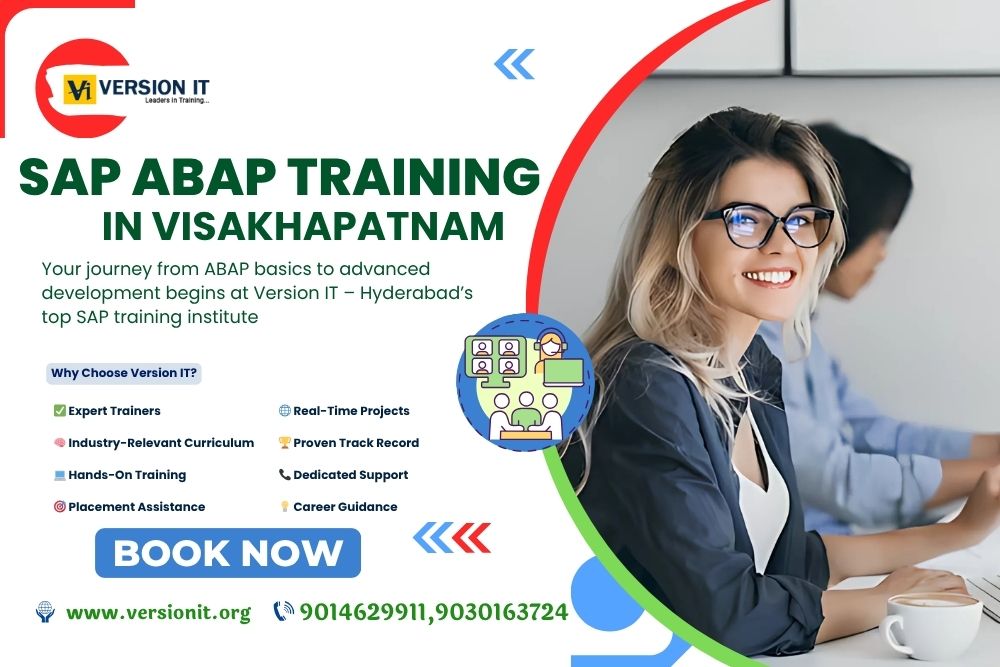Generative AI in ABAP Development: The 2025 Transformation
The 2025 Revolution: How Generative AI is Reshaping ABAP Development in the Enterprise Landscape
By 2025 generative AI will become one of the most disruptive influences on enterprise software development, particularly inside SAP ecosystems. To ABAP developers it is not merely a change in tools, it represents a radical re-engineering of how code is created, tested, and managed. The role of ABAP programmers is changing as organizations are increasingly using AI-augmented development environments and becoming more strategic and aligned with the business.
Beyond Automation: AI as a Collaborative Partner in ABAP
In the past, ABAP was tantamount to manual work, building up the function modules, using the data dictionaries, and working through intricate BAPI combinations. The use of intelligent assistants is growing, with the advent of generative AI, to take care of these tasks completely or at least to boost their performance. Developers will now be able to auto-complete templates, the logic of functions based on entering in natural language and even offer recommendations in real-time on currently available performance improvements.
Developers can collaborate with AI using modern tools that are incorporated with SAP Business Technology Platform (BTP). The AI learns the business situation, i.e., sales workflow, financial regulations, or inventory processes, and applies them to create code that is in harmony with enterprise logics and regulatory rules.
AI-Driven Code Generation with Business Awareness
The true advantage of generative AI in ABAP is that it can do more than just parsing syntax and understand business intent. To give an example, in the case where a developer requires a custom report or interface, AI tools provide possible recommendations on CDS views, access control checks as well as clean-core-compliant ABAP RESTful programming models (RAP).
Instead of wasting time decoding current logic, developers can already work on improving the source code generated by AI that complies with SAP standards. This is a significant productivity improvement- which is particularly helpful to groups with tightly constrained projects or intricate system environments.
Intelligent Debugging and Testing with AI
ABAP development has always suffered a bottleneck of debugging, especially on systems with a deeply integrated custom module set. Semantic analysis of codes, tracing program flows, and predicting which code paths are likely to cause short dumps or program-crashing errors can now be done by AI-based tools. Such tools also point out possible solutions and may reference other OSS Notes or SAP documentations.
This is also facilitating a quicker turnaround during quality assurance cycles and minimizing the involvement of more senior developers in root-cause analysis, which is becoming more noticeable as organizations are implementing SAP systems into scale.
Supporting the Next Generation of ABAP Developers
The new generation AI is also boosting the learning curve of new developers. Learners now have access to self-contained interactive tutorials built into their IDEs instead of using traditional tutorials. Multiple lines of code are accompanied by inline snippets, and it is possible to generate or explain complex ABAP constructs with natural language prompts.
To complement this AI-based learning, many learners are resorting to formal education channels. As an example, when someone wants to learn SAP ABAP Training in Visakhapatnam, they are becoming more interested in programs that include real-world, AI-zoned development challenges. This hybrid strategy will help students acquire technical expertise as well as knowledge of contemporary development tactics.
Role of Institutes and Online Learning in the AI Era
Training institutions are responding to the change rapidly as AI becomes the norm within the SAP development ecosystem. An AI-enabled SAP ABAP training institute located in Visakhapatnam, which gives hands-on access to AI-powered tools of development, will give a real competitive advantage to the learners in the job market. These schools are not simply teaching the syntax of ABAP they are training students on collaborating with AI in enterprise environments.
SAP ABAP Online Training in Visakhapatnam has been gaining popularity among learners who want the flexibility of learning. Virtual programs are now incorporating AI parts, distant laboratories and online mentoring to guarantee individuals may construct work-prepared skills wherever they are. But still, in the case of other locations and highly practical online courses, Version IT is where online learning in Hyderabad is found, and the online learning course replicates the changes in SAP industry today driven by AI.
AI-Powered Legacy Modernization
One of the major opportunities is to renew aged ABAP systems. Better examples include the fact that lots of enterprises continued running on custom code-built decades prior. Generative AI is also turning out useful in making these systems refactorable, meaning it can analyze the obsolete patterns, propose RAP-recommended alternatives, and rewrite code in a way that makes the system S/4HANA-ready.
When developers take a SAP ABAP Course in Visakhapatnam, they need exposure to legacy modernization. AI does not only automate most of this process, but also educates in the best practices, like clean-core development, and modular principles.
The Future of ABAP: AI-Native Development Environments
AI-native environments are the new standard to look forward to. IDEs with intelligent suggestions, repository review robots, and built-in code generators make ABAP development more effective and trustworthy. Once a developer understands syntax more time is spent doing strategic design and cross-module problem solving.
And these environments provide predictive analytics and performance tuning recommendations, as well as compliance checks on demand. This intensity of augmentation is not only transforming enterprise software development into faster but also business-results oriented.
With generative AI almost being a part of the ABAP development lifecycle, expectations of the SAP professionals are changing. Context-aware understanding of how to generate codes, working alongside AI, and accounting being central to advancing modernization is becoming a basic need. As a novice or an experienced developer, this change is important in remaining relevant in the SAP ecosystem.
And regardless of whether you are attending SAP ABAP Training in Visakhapatnam, taking the course in a local institute, or training online, the future is obvious. The next generation of ABAP development is AI-driven, and it is already present.




